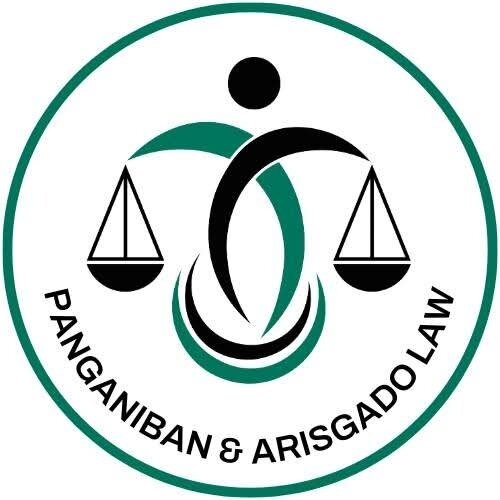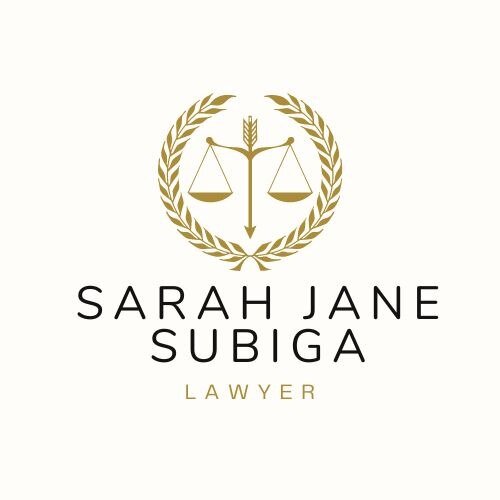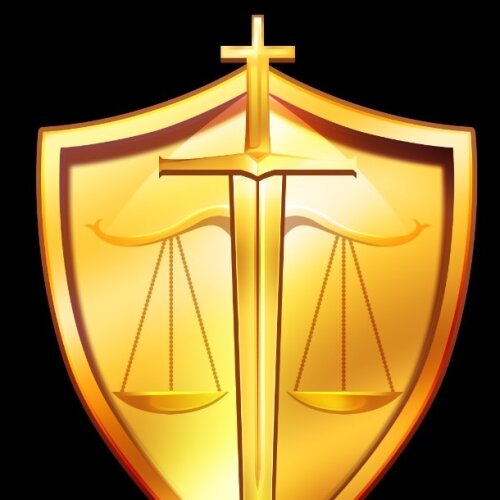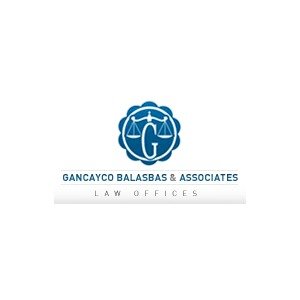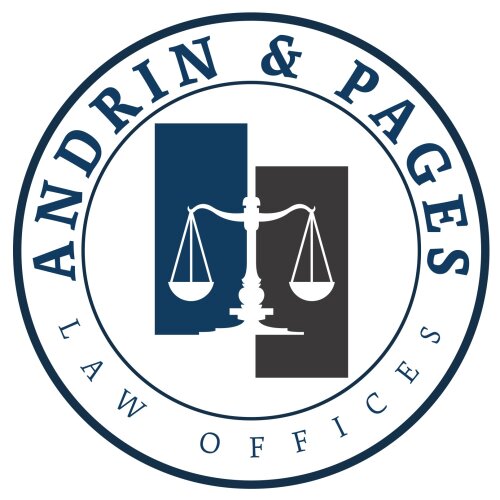Best Bankruptcy & Debt Lawyers in Philippines
Share your needs with us, get contacted by law firms.
Free. Takes 2 min.
Or refine your search by selecting a city:
List of the best lawyers in Philippines
Philippines Bankruptcy & Debt Legal Questions answered by Lawyers
Browse our 5 legal questions about Bankruptcy & Debt in Philippines and read the lawyer answers, or ask your own questions for free.
- International debt
- What can I do if a third party agency is contacting me regarding my debt which I left in Dubai 7 yrs ago
-
Lawyer answer by Recososa Law Firm
Hello: Presuming this matter is within Philippine jurisdiction, here is the clear picture of how debts from Dubai are handled when someone is now living in the Philippines. Since you did not leave your name, I will just address you...
Read full answer - Paano ko po mapapatigil yung naniningil sakin na lending apps
- Nangutana po ako sa MOCAMOCA apps,at sobrang taas po ng interest everyday tumutubo po sila kapag nadedelay magbayad may harrassment text and calls na po sila sakin nahihirapan na po ako magbayad dahil lumalaki na sya at may mga banta pa po sila.sana matulungan nyo ako hirap na hirap na... Read more →
-
Lawyer answer by Recososa Law Firm
Hello: Kung totoo man ang sitwasyon mo na may harassment, pananakot, o sobra-sobrang interes mula sa lending apps gaya ng MOCAMOCA, maaari nating tugunan ito sa ilalim ng Philippine law. Marami na ngayong reklamo laban sa mga online lending apps...
Read full answer - How much will be the cost for filing a bankruptcy
- I am an individual who is trying to file a bankruptcy to pay my debt on my Online Lending Applications.
-
Lawyer answer by Recososa Law Firm
Hello: Filing for bankruptcy in the Philippines is a legal process governed mainly by the Financial Rehabilitation and Insolvency Act (FRIA) of 2010 or Republic Act No. 10142. This law allows individuals or corporations who are unable to pay their...
Read full answer
About Bankruptcy & Debt Law in the Philippines
Bankruptcy and debt law in the Philippines is primarily governed by the Financial Rehabilitation and Insolvency Act (FRIA) of 2010, which provides a legal framework for individuals and businesses to reorganize debt or declare bankruptcy. This law aims to establish orderly debt settlement for insolvent persons and businesses to preserve jobs and entrepreneurship while providing fair distribution of assets to creditors. It includes both voluntary and involuntary proceedings, as well as options for rehabilitation or liquidation.
Why You May Need a Lawyer
Dealing with bankruptcy and debt issues can be complex, and having legal expertise is crucial for navigating these challenges effectively. People may need a lawyer when they:
- Face overwhelming debt and are considering filing for bankruptcy to seek relief through debt reorganization or liquidation.
- Are creditors seeking to recover debts from insolvent debtors and need legal guidance to protect their interests.
- Require advice on financial rehabilitation for their business, understanding the procedure, and crafting a viable rehabilitation plan.
- Need representation in court proceedings related to insolvency or asset distribution among creditors.
- Want to explore alternatives to bankruptcy such as debt restructuring or settlement negotiations with creditors.
Local Laws Overview
Key aspects of local laws relevant to bankruptcy and debt in the Philippines include:
- The Financial Rehabilitation and Insolvency Act of 2010: This law provides a comprehensive framework for both voluntary and involuntary proceedings for rehabilitation and liquidation for individuals and businesses.
- Voluntary Proceedings: Debtors can initiate bankruptcy if they believe they are unable to meet liabilities. The process involves petitioning the court and may lead to rehabilitation or liquidation based on the circumstances.
- Involuntary Proceedings: Creditors can also file petitions against a debtor if they meet specific criteria, such as failure to meet liabilities or executing paralyzing acts of insolvency.
- Rehabilitation: This focuses on reorganizing and rehabilitating financially distressed businesses to continue operations while settling obligations.
- Liquidation: In cases where rehabilitation is not feasible, the debtor's assets are liquidated to satisfy creditor claims.
- Individual Debtors and Sole Proprietors: The law provides specific provisions for these groups, including the ability to file for suspension of payments or enter into a rehabilitation plan.
Frequently Asked Questions
What is bankruptcy, and how does it differ from insolvency in the Philippines?
Bankruptcy is a legal status declared by a court where an individual or entity cannot meet outstanding debts. Insolvency is a financial state where liabilities exceed assets, but does not necessarily mean that a court has declared bankruptcy.
Can individuals file for bankruptcy in the Philippines?
Yes, individuals, including sole proprietors, can file for suspension of payments or enter into a rehabilitation plan under the FRIA.
What is the difference between rehabilitation and liquidation?
Rehabilitation aims to allow an insolvent entity to continue operations by restructuring debts, while liquidation involves selling assets to pay off creditors, after which the entity ceases operations.
Who can initiate involuntary bankruptcy proceedings?
Creditors may initiate involuntary bankruptcy proceedings against a debtor if the debtor fails to settle obligations, acts in insolvency, or attempts to avoid creditors unjustly.
What is a rehabilitation plan?
A rehabilitation plan is a detailed proposal for how an insolvent individual or business will restructure debt obligations while continuing to operate, subject to court approval.
Are there any exemptions or protections for debtors under Philippine law?
Under the FRIA, certain personal assets necessary for basic living, such as modest household items, may be exempt from liquidation proceedings.
What is the role of the trustee in bankruptcy proceedings?
The trustee is appointed by the court to manage the debtor's estate, facilitate rehabilitation or liquidation, and ensure fair distribution of assets to creditors.
How long does the bankruptcy process take in the Philippines?
The duration varies depending on the complexity of the case, cooperation of all parties, and court schedules. Rehabilitation may take years, while liquidation can be shorter.
Can a bankruptcy decision be appealed?
Yes, decisions regarding bankruptcy proceedings can be appealed to higher courts depending on the nature and grounds of the appeal.
What happens after successful rehabilitation or liquidation?
In successful rehabilitation, the debtor continues normal business operations with a restructured debt status. After liquidation, the entity ceases to exist, having settled its obligations as directed by the court.
Additional Resources
For more information and assistance, consider reaching out to:
- Securities and Exchange Commission (SEC): Offers guidelines and regulations for corporate rehabilitations.
- Department of Trade and Industry (DTI): Provides support for businesses seeking financial advice and creditor mediation.
- Integrated Bar of the Philippines (IBP): Offers legal seminars and directories for lawyer services related to insolvency.
- Philippine Judicial Academy: Educational resources for understanding legal processes in bankruptcy and debt.
Next Steps
If you believe you require legal advice regarding bankruptcy and debt matters in the Philippines, the following steps may be helpful:
- Consult with a lawyer who specializes in bankruptcy and debt law to discuss your specific situation and assess your legal options.
- Gather all relevant financial documents, asset details, and debt obligations to provide a comprehensive overview for legal evaluation.
- Consider alternative dispute resolution options such as mediation or arbitration for debt settlements if feasible.
- Stay informed about current laws and procedures by reviewing government resources, legal guides, and consulting regularly with your lawyer.
Lawzana helps you find the best lawyers and law firms in Philippines through a curated and pre-screened list of qualified legal professionals. Our platform offers rankings and detailed profiles of attorneys and law firms, allowing you to compare based on practice areas, including Bankruptcy & Debt, experience, and client feedback.
Each profile includes a description of the firm's areas of practice, client reviews, team members and partners, year of establishment, spoken languages, office locations, contact information, social media presence, and any published articles or resources. Most firms on our platform speak English and are experienced in both local and international legal matters.
Get a quote from top-rated law firms in Philippines — quickly, securely, and without unnecessary hassle.
Disclaimer:
The information provided on this page is for general informational purposes only and does not constitute legal advice. While we strive to ensure the accuracy and relevance of the content, legal information may change over time, and interpretations of the law can vary. You should always consult with a qualified legal professional for advice specific to your situation.
We disclaim all liability for actions taken or not taken based on the content of this page. If you believe any information is incorrect or outdated, please contact us, and we will review and update it where appropriate.
Browse bankruptcy & debt law firms by service in Philippines
Philippines Attorneys in related practice areas.
Browse bankruptcy & debt law firms by city in Philippines
Refine your search by selecting a city.







